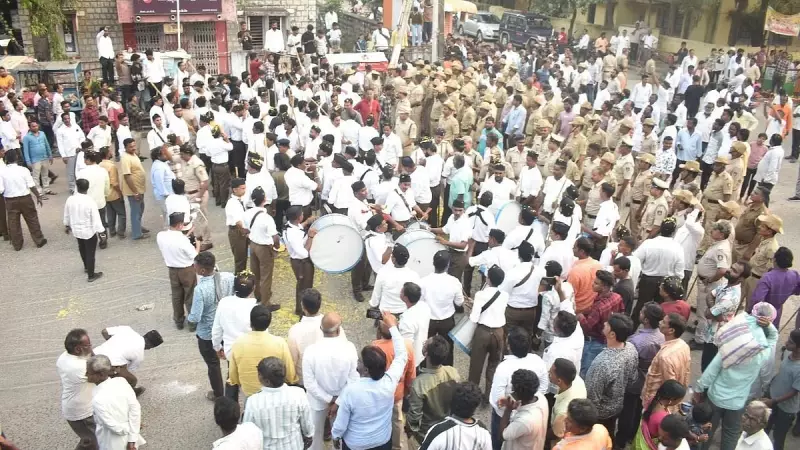
In a striking display of defiance, the Rashtriya Swayamsevak Sangh (RSS) pushed forward with a route march in Sedam town, Karnataka, despite the state government's clear refusal to grant permission for the event. The march proceeded under heavy police surveillance, creating a tense atmosphere in the Kalaburagi district.
The Congress-led state government had officially denied authorization for the march, citing potential law and order concerns. However, RSS members and supporters gathered in significant numbers, demonstrating the organization's determination to proceed with their planned activities regardless of governmental approval.
Massive Turnout Despite Official Ban
Eyewitnesses reported substantial participation in the march, with RSS volunteers marching through designated routes in Sedam. The event unfolded under the watchful eyes of Karnataka police, who maintained a strong presence throughout the demonstration to prevent any untoward incidents.
Local authorities had deployed additional security forces in anticipation of the unauthorized event, creating a delicate balance between maintaining public order and respecting the organization's right to assemble.
Political Implications and Reactions
This confrontation marks a significant escalation in the ongoing political tensions between the RSS and the Congress government in Karnataka. The deliberate flouting of government orders raises questions about the balance of power and the enforcement of administrative decisions in the state.
The incident has sparked debates about political sovereignty and the extent to which organizations can challenge governmental authority. Political analysts suggest this event could have far-reaching implications for future interactions between the state government and various political and social organizations.
Security Measures and Public Response
Despite the tense situation, the march concluded without reported incidents of violence. The heavy police deployment appeared to have successfully maintained order, though the underlying political tensions remain unresolved.
Local residents expressed mixed reactions to the event, with some supporting the RSS's right to assemble while others questioned the wisdom of defying clear government directives.
This incident in Sedam represents more than just a route march—it symbolizes the growing political confrontations in Karnataka and sets a precedent for how similar situations might be handled in the future.





